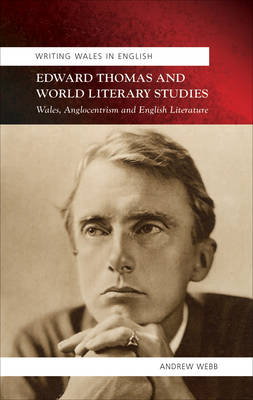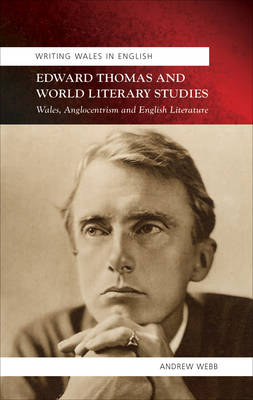
- Afhalen na 1 uur in een winkel met voorraad
- Gratis thuislevering in België vanaf € 30
- Ruim aanbod met 7 miljoen producten
- Afhalen na 1 uur in een winkel met voorraad
- Gratis thuislevering in België vanaf € 30
- Ruim aanbod met 7 miljoen producten
Zoeken
Edward Thomas and World Literary Studies
Wales, Anglocentrism and English Literature: Writing Wales in English
Andrew Webb
€ 34,95
+ 69 punten
Omschrijving
Edward Thomas and World Literary Studies offers a revelatory rereading of the early twentieth century English poet Edward Thomas (1878-1917). Adapting Pascale Casanova's vision of world literature as a system of competing national traditions, Andrew Webb analyzes Thomas's appropriation of Anglocentric British literary culture during key moments of historical crisis in the twentieth century: after World War I, before and after World War II, and the resumption of war in Ireland in the 1970s. Webb shows how the dominant linguistic assumptions underpinning the discipline of English literature marginalize the Welshness of Thomas's work. He then combines this revised world literature model with fresh archival research to reveal how Thomas's reading of Welsh culture--its folk and literary traditions--is central to both his creation of an innovative body of poetry and to his extensive prose.
Specificaties
Betrokkenen
- Auteur(s):
- Uitgeverij:
Inhoud
- Aantal bladzijden:
- 221
- Taal:
- Engels
- Reeks:
Eigenschappen
- Productcode (EAN):
- 9780708326220
- Verschijningsdatum:
- 15/10/2013
- Uitvoering:
- Paperback
- Formaat:
- Trade paperback (VS)
- Afmetingen:
- 137 mm x 211 mm
- Gewicht:
- 317 g

Alleen bij Standaard Boekhandel
+ 69 punten op je klantenkaart van Standaard Boekhandel
Beoordelingen
We publiceren alleen reviews die voldoen aan de voorwaarden voor reviews. Bekijk onze voorwaarden voor reviews.











